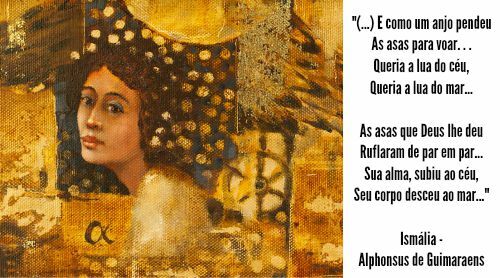THE Contemporary Brazilian Literature it encompasses productions from the end of the 20th century and the first half of the 21st century, being marked by a multiplicity of trends.
It brings together a set of characteristics from several previous literary schools, thus revealing a mix of trends that will innovate poetry and prose (short stories, chronicles, novels, novels, etc.) of the time course.
Many features of contemporary literature are related to the modernist movement, for example, the break with traditional values. However, identity at this time is no longer a search, being revealed by an existential crisis of postmodern man.
Some avant-garde movements that marked contemporary production were:
- Concretism
- Neoconcretism
- Poetry-Praxis
- Marginal Poetry
- Process poem
Features
The main features of contemporary literature are:
- Blend of aesthetic trends (eclecticism)
- Union of high art and popular art
- Historical, social and urban prose
- Intimate, visual and marginal poetry
- Daily and regional themes
- Social engagement and marginal literature
- formal experimentalism
- Innovative techniques (graphic resources, assemblies, collages, etc.).
- Reduced forms (mini-tales, mini-chronicles, etc.)
- Intertextuality and metalanguage
Main Authors and Works
Below are some writers of contemporary Brazilian literature:
- Arian Suassuna(1927-2014): writer from Paraíba, wrote poetry and novels, essays and plays. Since 1990 he has held the 32nd chair at the Brazilian Academy of Letters. He is the author of “Compadecida's Report” (1955) and “The Romance of The Stone of the Kingdom and the Prince of the Blood of the Come-and-Volta” (1971).
- Antônio Callado (1917-1997): writer and journalist born in Niterói, Antônio Callado wrote drama, biography and novels, among which the novels “The Cedar Madonna” (1957) and “Quarup” (1967); and the dramaturgy works “Chica da Silva's treasure” (1962) and “Forró at Engenho Cananeia” (1964).
- Adelia Prado (1935-): born in the city of Divinópolis, in Minas Gerais, Adélia Prado wrote poetry, novels and short stories. From his literary production, the following stand out: the book of poetry “Baggage” (1976) and the novel “the man with the dry hand” (1994).
- cacasse (1944-1987): poet from Minas Gerais, born in Uberaba, Antônio Carlos de Brito was a great highlight in marginal poetry. Of his works, the poetry books stand out "on a tightrope” (1978) and "Mineiro Sea" (1982).
- Caio Fernando Abreu (1948-1996): Gaucho writer born in Santiago, Rio Grande do Sul, Caio wrote short stories, novels, novels and plays, among which the following stand out: the book of short stories “moldy strawberries” (1982) and the novel “Where will Dulce Veiga walk?” (1990).
- Carlos Hector Cony(1926-2018): Born in Rio de Janeiro, Carlos is a writer and journalist, owner of a vast work. A member of the Brazilian Academy of Letters since 2000, he has written short stories, chronicles, novels, essays, children's works, movie scripts, soap operas, documentaries, among others. From his work, the novels stand out "Passover: the crossing” (1975) and “Almost Memory” (1995).
- Cora Coraline (1889-1985): Anna Lins from Guimarães Peixoto Bretas was born in Goiás. She wrote poetry and short stories using the pseudonym Cora Coralina. From her work, the poetry book “Poems from the Alleys of Goiás and more stories” (1965) and the book of stories “Stories from Casa Velha da Ponte” (1985).
- Dalton Trevisan (1925-): writer from Paraná born in Curitiba, Dalton is one of the most outstanding storytellers in contemporary literature. For being an eccentric and mysterious figure Dalton Trevisan was known by the name “Vampire of Curitiba”. Of his work, the book of short stories “The Vampire of Curitiba” (1965) and the recent work of short stories called “111 Woe” (2000).
- Ferreira Gullar(1930-2016): writer from Maranhão born in São Luís, Ferreira Gullar has been a member of the Academia Brasileira de Letras since 2014. She wrote poetry, short stories, chronicles, essays, memoirs, biographies, among which poetry books stand out “dirty poem” (1976) and “nowhere” (2010). Without a doubt his best-known essay is the “non-object theory” (1959).
- Lya Luft (1938): born in the city of Santa Cruz do Sul, in the state of Rio Grande do Sul, Lya is a writer, translator and teacher. She has a vast literary work from novels, poems, short stories, essays and children's books, which stand out: “Threshold Songs” (1964) and “Gains and Losses” (2003).
- Millôr Fernandes (1923-2012): Born in Rio de Janeiro, Millôr Fernandes is a multifaceted artist. He was a writer, journalist, playwright and designer (cartoonist). His literary work is full of irony, humor and sarcasm, which stands out: “Hai-Kais” (1968), “Millor Definitive: The Bible of Chaos” (1994) and “The interview” (2011).
- Murilo Rubião (1916-1991): writer and journalist from Minas Gerais, Murilo was a newspaper and magazine editor, standing out in literature with his work of short stories: “the former magician” (1947), “The pyrotechnician Zechariah” (1974) and “The guest” (1974).
- Nelida Pinon (1937-): writer born in Rio de Janeiro, Nélida Piñon was a journalist and editor. A member of the Brazilian Academy of Letters since 1989, Nélida has written essays, novels, short stories, chronicles, and works of children's literature, among which the novel “the house of passion” (1977) and the book of stories “Daily bread: fragments” (1994).
- Paulo Leminski (1944-1989): writer from Curitiba belonging to the mimeograph or marginal literature generation, Paulo wrote poetry, essays, novels, short stories, works of children's literature. Of his work, the poetry book “distracted we will win” (1987) and the novel “Now it's them” (1984).
- Rubem Braga (1913-1990): Born in Espírito Santo, in the municipality of Cachoeiro de Itapemirim, Rubem Braga is considered one of the greatest chroniclers in the country. From his work stand out "Chronicles of the Holy Spirit” (1984) and “Summer and Women” (1990).
Don't stop there. There are more texts very useful for you:
- 16 greatest modern and contemporary Brazilian poets
- 10 Brazilian Tales You Must Know
- Literary Schools



